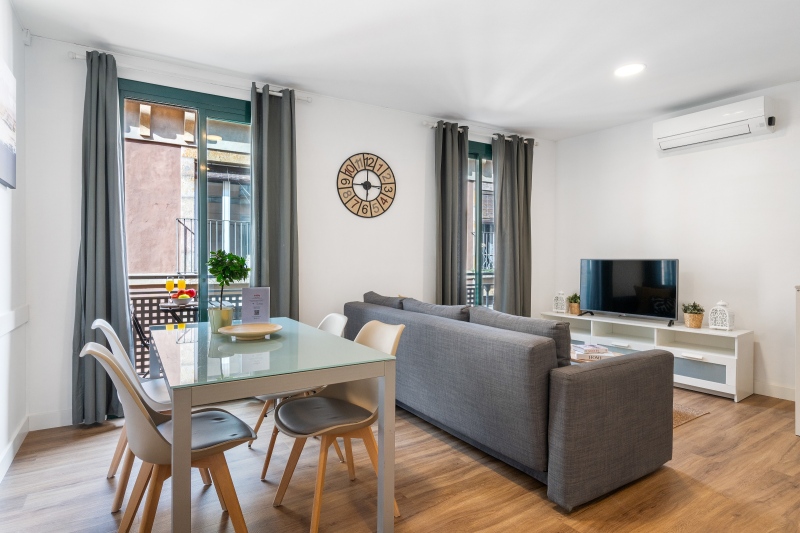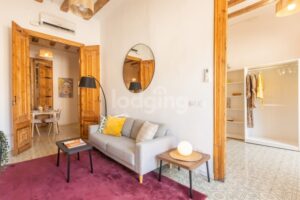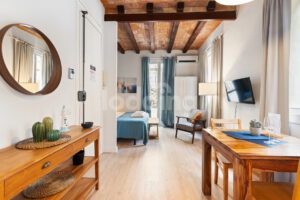The University of Barcelona ranks among the best universities in the world, while Sips has earned global recognition as the third best cocktail bar in The World’s 50 Best Bars list. From the perspective of Lodging Management, experts in monthly rental in Barcelona, these distinctions confirm what is already clear: the city has firmly established itself as one of the most desirable places to live, study and enjoy life.
Every year, Barcelona welcomes thousands of international students of all ages. Increasingly, they arrive, with and without their families, to pursue postgraduate or Master’s programmes, or academic stays. Against this backdrop, short-term apartments have become the preferred choice for those seeking comfort, prime locations, flexibility and a superior quality of life throughout their stay.
According to a report published in January 2025 by property consultancy Knight Frank, Spain is experiencing a significant transformation in the student accommodation sector. Madrid, Valencia, and, above all, Barcelona are leading this trend, driven by the growing number of international students drawn by the country’s academic excellence. The study also highlights growing interest among both domestic and international investors in developing short-term accommodation projects tailored to student needs.
Barcelona stands out in this landscape for its robust urban infrastructure, vibrant cultural scene and world-class academic institutions such as the University of Barcelona, the Polytechnic University of Catalonia and Pompeu Fabra University. Combined with its cosmopolitan and dynamic lifestyle, these factors have positioned the city as a global benchmark for higher education.
Beyond their academic goals, international students increasingly look for a complete life experience. Housing plays a decisive role in their wellbeing, productivity and ability to integrate into the city. Location remains a priority: they prefer well-connected areas close to universities, with easy access to shops, leisure and cultural venues. Neighbourhoods such as Eixample, Gràcia, Sants and El Born are particularly popular for their balance of urban life, cultural dynamism and proximity to major educational centres.
Comfort and design are equally important. Many students, particularly postgraduates, look for apartments that provide a pleasant, functional environment. The most sought-after properties feature fully equipped kitchens, private bathrooms, contemporary furnishings and high-speed internet. This so-called “IKEA effect” has raised tenant expectations, making design, comfort and functionality essential to tenant satisfaction.
In addition to these essentials, students increasingly value services that add to their experience, particularly for longer stays. Regular cleaning of communal areas, dedicated study spaces and 24-hour security are among the most valued features, especially by mature students and professionals in training.
A Model that Appeals to Property Owners
For property owners, flexibility is one of the main advantages of short-term rentals. Stays typically coincide with the duration of academic programmes, exchanges or intensive courses, allowing rental contracts to adapt to real demand and maximise profitability. This model is particularly attractive for those visiting the city for shorter or open-ended periods.
Within this segment, room rentals are gaining importance. They allow owners to maintain access and oversight of shared areas, providing reassurance for those cautious about renting to students. Moreover, student housing is no longer limited to young undergraduates; it now attracts postgraduate students, researchers and professionals choosing Barcelona as a temporary base.
Barcelona’s property market will continue to evolve in response to new residential models and global mobility trends. At Lodging Management, experts in monthly rental in Barcelona, we remain committed to professional, flexible management that benefits both property owners and tenants. Our aim is to deliver innovative, comfortable and profitable rental solutions that respond to the city’s growing demand for adaptable, future-oriented living.






